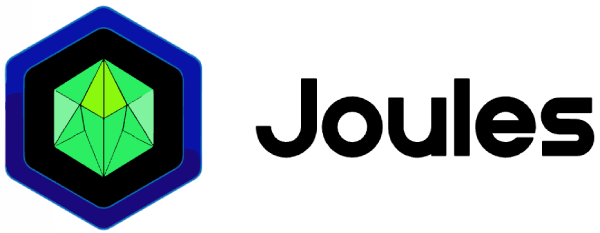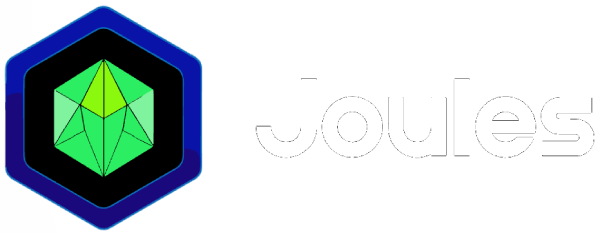2025 Solar Software Comparison: Choose the Right CRM
PUBLISHED 2025-10-14
Written by
JoulesCRM Team
Content Creator
Reviewed by
Editorial Team
Content Reviewer
2025 Solar Software Comparison: Choose the Right CRM
The Cost of Using Multiple Tools
Running a solar installation business with disconnected tools creates hidden costs. Your team enters lead data into your CRM, re-enters it into your design software, then again into project management, and once more into field operations apps.
A typical 20-person solar company using 3-4 disconnected platforms spends:
18 hours per week on duplicate data entry
$30,000-50,000/year on software subscriptions
$12,000-25,000/year on integration tools like Zapier
2-3 weeks average project delays due to communication gaps
This adds up to over $100,000 annually in direct and indirect costs. The right software choice isn't just about features—it's about operational efficiency.
The 5 Leading Platforms
1. Aurora Solar - Design Excellence
Best for: Companies prioritizing design accuracy and commercial projects
Aurora Solar has earned its reputation as the gold standard for solar design. The platform uses AI-assisted panel placement and advanced shading analysis to create accurate system designs without site visits.
Strengths:
Industry-leading design precision
Stunning 3D visualizations for proposals
Excellent for commercial solar projects
Strong financial modeling tools
Limitations:
Limited CRM and project management features
Requires additional tools for operations
Higher price point ($250-500/month per user)
Steeper learning curve
Best fit: Design-heavy firms doing commercial work who can afford to integrate other tools for CRM and operations.
2. Scoop Solar - Field Operations Focus
Best for: Companies needing strong field operations and crew management
Scoop excels at connecting office operations with field crews. The mobile app is designed for installers on rooftops, with offline functionality and photo documentation.
Strengths:
Excellent mobile experience for field crews
Real-time project updates from the field
Strong photo and documentation tools
Good crew scheduling features
Limitations:
Basic CRM functionality
Limited design capabilities
Less comprehensive for sales process
Pricing around $200-400/month per user
Best fit: Installation-focused companies with large field crews who handle design and CRM elsewhere.
3. JobNimbus - Project Management Power
Best for: Companies managing complex projects across multiple trades
JobNimbus started in roofing and expanded to solar. It's built for project management with strong workflow customization and contractor management features.
Strengths:
Highly customizable workflows
Strong project tracking and task management
Good for multi-trade contractors
Affordable pricing ($50-100/month per user)
Limitations:
No built-in solar design tools
Basic CRM features
Requires significant setup and configuration
Interface can feel dated
Best fit: Multi-trade contractors doing solar alongside roofing or other services.
4. Enerflo - Sales Pipeline Specialist
Best for: Sales-driven organizations focused on lead conversion
Enerflo emphasizes sales enablement with strong lead management, proposal generation, and sales analytics. It's designed to help teams close more deals faster.
Strengths:
Powerful sales pipeline management
Built-in proposal and contract tools
Good integration with financing options
Strong sales reporting and analytics
Limitations:
Weaker on installation and operations
Requires integration for design tools
Limited field operations features
Pricing varies based on company size
Best fit: High-volume residential installers prioritizing sales velocity and lead conversion.
5. JoulesCRM - All-in-One Platform
Best for: Growing companies seeking an integrated end-to-end solution
JoulesCRM takes a different approach: everything in one platform. From first contact through final installation, all data lives in a single system designed specifically for solar.
Strengths:
Truly unified platform (no integrations needed)
Comprehensive feature set across the entire lifecycle
Built specifically for solar installation workflows
Transparent pricing with no per-user fees
Modern, intuitive interface
Quick implementation (days, not months)
Limitations:
Design tools not as advanced as Aurora
Newer platform with smaller community
Some enterprise features still in development
Best fit: Growing solar companies (10-100 employees) tired of managing multiple tools and seeking operational efficiency.
Choosing the Right Platform
If Design Accuracy is Critical
Choose Aurora Solar. No other platform matches its design precision, especially for commercial projects. Budget for additional CRM and operations tools.
If You Have Large Field Crews
Choose Scoop Solar. The mobile-first approach and field operations focus make it ideal for installation-heavy companies with 10+ crews.
If You Do Multi-Trade Work
Choose JobNimbus. Its flexibility across different contractor types and affordable pricing make it a solid choice for diversified businesses.
If Sales Volume is Your Priority
Choose Enerflo. The sales-focused features and pipeline management will help high-volume residential installers close more deals.
If You Want Simplicity and Integration
Choose JoulesCRM. If you're tired of managing multiple tools and want everything in one place, the unified platform approach delivers the efficiency gains that come from true integration.
Making the Decision
The best solar software isn't the one with the most features—it's the one that matches your business model and eliminates operational friction.
Consider these questions:
What's your biggest pain point? Design accuracy? Lead conversion? Field coordination? Pick the platform that solves your #1 problem.
What's your team size? Smaller teams (under 10) need simplicity. Larger teams (50+) can handle complexity and integration overhead.
What's your budget? Remember to account for integration costs and lost productivity during implementation, not just subscription fees.
How tech-savvy is your team? Some platforms require significant training and ongoing administration. Others are intuitive from day one.
Most importantly: get demos and trial periods. Every company claims to be the best fit. Only hands-on experience will tell you if the software actually works for your workflows.
Next Steps
Ready to move forward? Here's what to do:
Audit your current tools - Document what you're spending and where time is wasted
Schedule demos - See 2-3 platforms in action with your actual use cases
Test with your team - Get input from sales, operations, and installation crews
Plan the transition - Budget time for data migration and training
Measure results - Track efficiency gains in your first 90 days
The right software can transform your solar business from chaotic to streamlined. Take the time to choose wisely—your team will thank you.
Want to see JoulesCRM in action? Schedule a demo to see how an all-in-one platform can eliminate the chaos of managing multiple tools.

